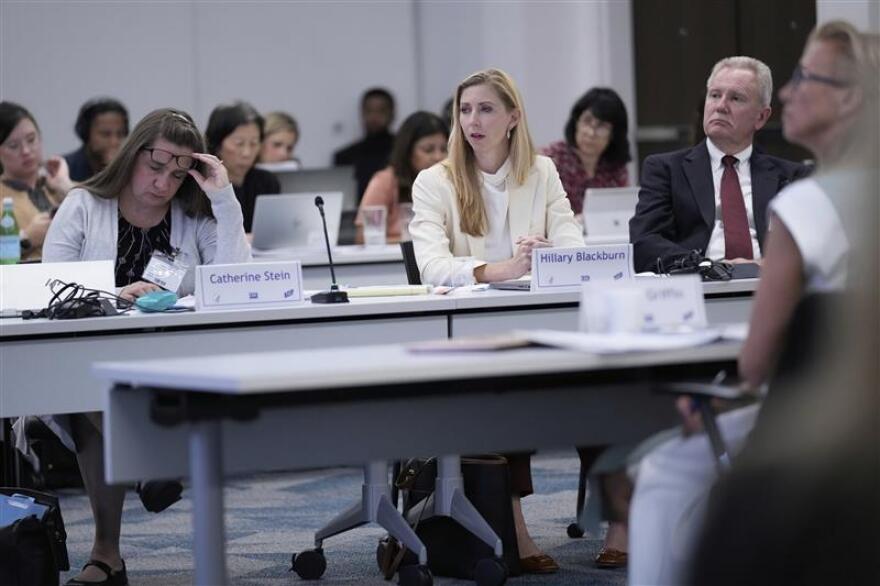An Illinois State University researcher who's studied how people think about vaccines says she’s frustrated at how changing federal guidance surrounding vaccines has created confusion that’s made complicated medical decisions even more so.
Kelly Clemens, a professor in the Department of Psychology, studies people’s beliefs and attitudes toward vaccines. She said vaccines are safe and effective but that the federal government’s skeptical approach helps create “an ideal environment for a lot of the psychological barriers to vaccination” that she and others have researched.
“Right now, we see medical organizations – the American Academy of Pediatrics, the American Medical Association – going not completely in opposition, but making different recommendations than the CDC and ACIP, the Advisory Committee on Immunization Practices [ACIP]. And so that creates a lot of confusion for people, and then that brings up thoughts and feelings for people. ‘Well, are vaccines safe, and are they effective? And if they are safe and effective, then why is there all of this disagreement?’” said Clemens.
Vaccine hesitancy is not new, but the concept became more prominent – and politicized – during the COVID-19 pandemic. Clemens said there are generally four types of reasons why people do or don’t get vaccinated:
- Medically unable, such as those who are immunocompromised or allergic.
- Structural barriers, like you don’t live near a pharmacy or can’t afford it.
- Psychological [or attitudinal] barriers, like what someone believes or feels.
- Social barriers, such as family pressures or influence from social media.
Psychological and social barriers are often lumped together, Clemens said, but there’s value in looking at them as separate issues. Psychological barriers include things like a person who doesn’t get the flu shot because they don’t believe the flu is that bad, or thinks vaccines are scary.
“All of these seem really simple, but they have a huge impact on whether or not we go and become vaccinated,” Clemens said.
The second Trump administration has been vocal regarding vaccines and immunizations. The country’s top health official, Robert F. Kennedy Jr., is skeptical about vaccines and the pharmaceutical industry in general.
Just this week, the CDC accepted ACIP’s controversial new guidelines for the updated COVID-19 vaccines that could make it harder for many people to protect themselves this winter compared with previous years. That change occurred because top Trump administration health officials like Kennedy say they have concerns about the safety and effectiveness of the vaccines, even though there is overwhelming evidence the vaccines are very safe and highly effective.
The Trump administration’s posture trickle down to people, Clemens said, including a social-psychological phenomenon called “mere exposure.”
“As we hear an idea, as we hear ‘vaccines are more dangerous,’ even if we don't buy into that, it shifts us little bits at a time. It doesn't necessarily mean I feel positive about that idea now. It doesn't mean that I totally agree with it. But maybe I feel less bad about it. So, it is shifting the public consciousness and the way that we think about vaccination,” Clemens said.
When skeptics argue “we don’t have enough curiosity” about vaccine science, Clemens said that’s a thinly veiled way of saying we need to explore alternatives to vaccinations.
“These are not things that are supported by evidence,” said Clemens. “And so, the administration is saying one thing and then doing things that are actively having the opposite effect. They say they want to increase public trust in vaccination or overcome distrust, but then they are doing things that are increasing distrust by giving mixed messages, by turning away from evidence."
Maybe more than ever, people are hearing more competing information about vaccines. Federal and state guidance is diverging. It gets hard for people to be able to distinguish credible sources from the less credible. Clemens pointed to credible sources like the American Medical Association and the American Academy of Pediatrics, as well as the Illinois Department of Public Health.
“It's really difficult. We have different sources of expertise. And I think right now, our federal sources of expertise are lacking in trust. We see even insurance advisory committees right pulling away from federal recommendations, which is scary,” Clemens said.




